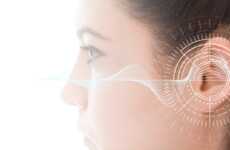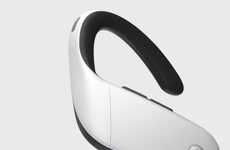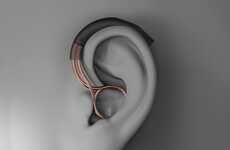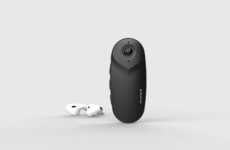
This Device Reads Brainwaves to Make It Easier to Communicate in Crowds
Ellen Smith — August 9, 2017 — Social Good
References: engineering.columbia.edu & digitaltrends
Cognitive Hearing Aids aim to re-define the experiences of hearing impaired people by offering a decisive piece of technology that can differentiate voices in a crowded room. Smart technology offers people with hearing impairments a wider range of communicative tools, however the amplified noise in group settings or crowded areas can pose as a problem even for those equipped with high quality hearing aids.
To combat this issue, the Columbia University School of Engineering and Applied Science has crafted a decisive piece of technology that is "designed to read brain activity to determine which voice a hearing aid user is most interested in listening to and then focusing in on it."
Up until now, no other product on the market has tackled this issue. The conception of cognitive hearing aids would stand as the first non-intrusive method of crowd- communication enhancement for hearing impaired people.
To combat this issue, the Columbia University School of Engineering and Applied Science has crafted a decisive piece of technology that is "designed to read brain activity to determine which voice a hearing aid user is most interested in listening to and then focusing in on it."
Up until now, no other product on the market has tackled this issue. The conception of cognitive hearing aids would stand as the first non-intrusive method of crowd- communication enhancement for hearing impaired people.
Trend Themes
1. Cognitive Hearing Aids - This trend of cognitive hearing aids presents an opportunity for disruptive innovation in the hearing aid industry.
2. Voice Differentiation Technology - The development of technology that can differentiate voices in a crowded room offers opportunities for disruptive innovation in communication and audio technology.
3. Brainwave Reading Technology - The emergence of brainwave reading technology opens up new possibilities for disruptive innovation in healthcare and assistive technology.
Industry Implications
1. Hearing Aid Industry - The hearing aid industry can leverage cognitive hearing aids to revolutionize the way hearing impaired people communicate in crowded environments.
2. Communication Technology Industry - The communication technology industry can explore the use of voice differentiation technology to improve audio experiences in group settings and crowded areas.
3. Healthcare Industry - The healthcare industry can utilize brainwave reading technology to develop innovative solutions for various medical applications, including assistive devices for hearing impairment.
4.1
Score
Popularity
Activity
Freshness























